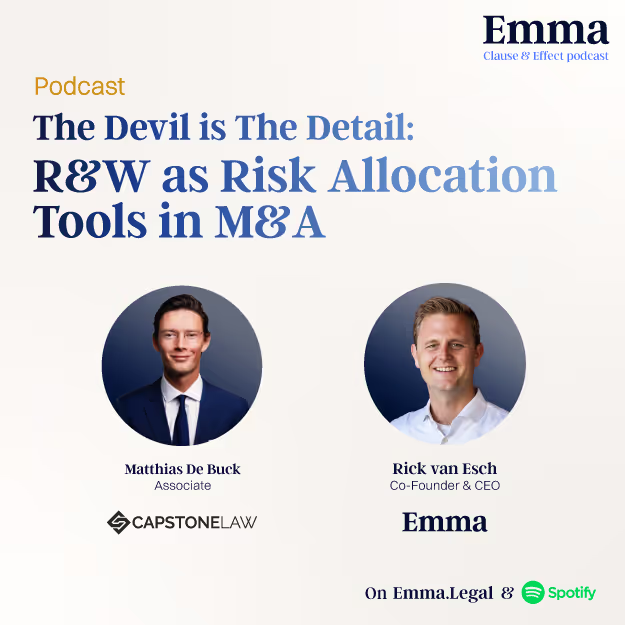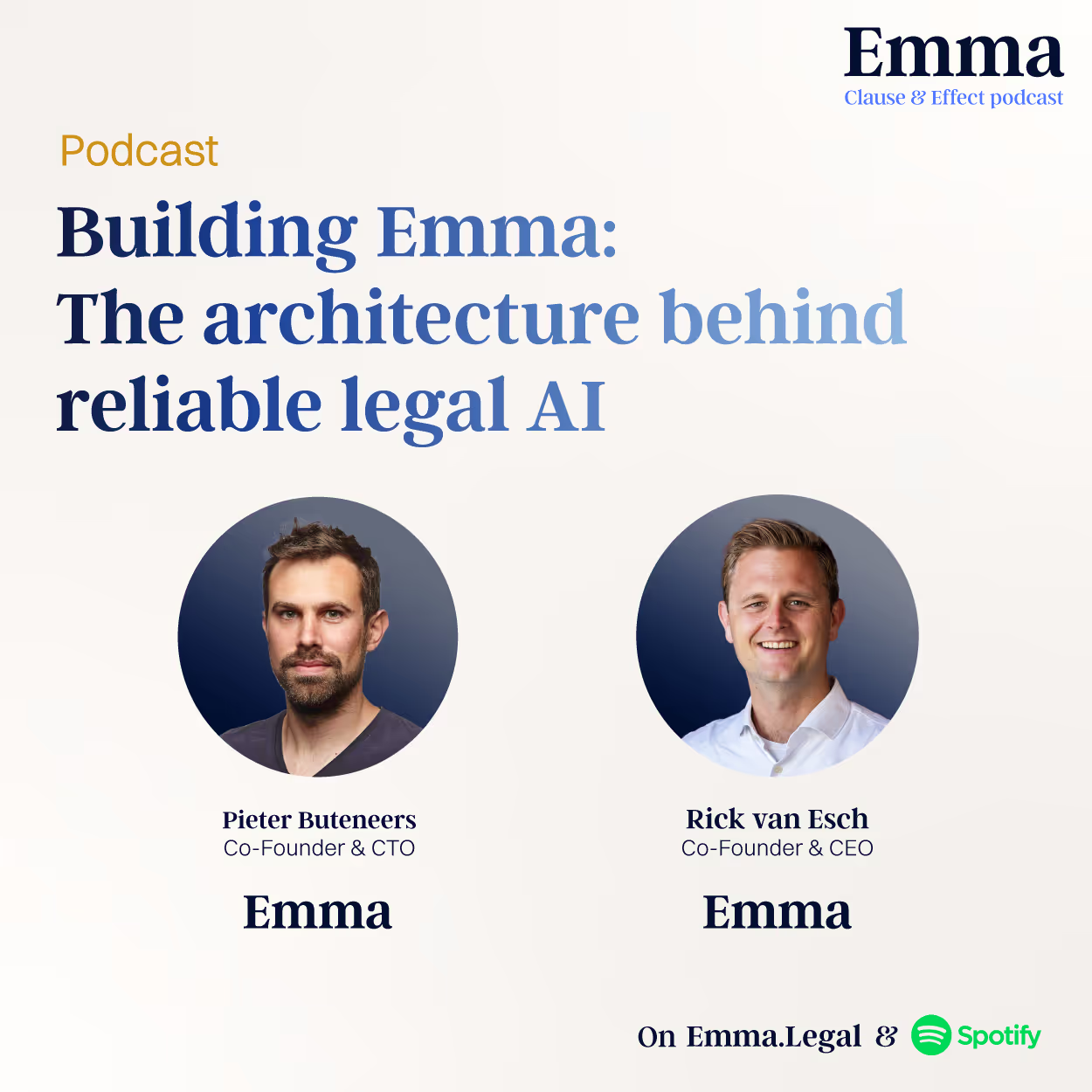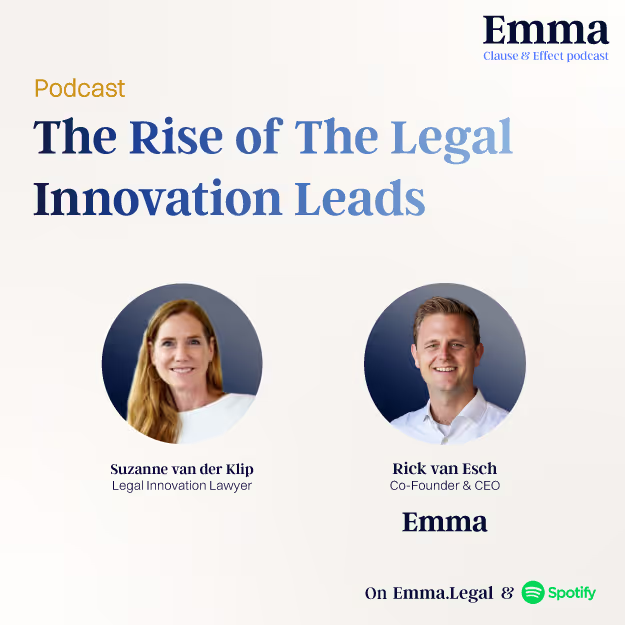Featuring insights from Christopher Tournis Gamble, this article explores how operator-led private equity and AI tools like Emma Legal are helping solve Europe’s €7 trillion succession crisis. Christopher argues that fast, tech-enabled diligence and empathetic leadership are redefining how buyouts get done.
When Christopher Tournis Gamble, Managing Partner at WAD Capital, describes the private equity landscape, he doesn’t start with a fund. He starts with a crisis.
“There’s roughly €7 trillion in enterprise value at risk of disappearing from the European economy because of a looming succession crisis,” he explains. “If we don’t solve that, the impact will be massive.”
The problem is generational: thousands of small-to-mid-sized businesses across Europe were built by founders who are now ready to step away, but have no succession plan. Their companies are profitable, some pushing 30% EBITDA margins, but they’re invisible to the startup-obsessed media and often overlooked by traditional PE.
WAD Capital was built to fill that gap.
Not just capital, but a new kind of CEO
WAD Capital operates what looks a lot like a scaled-up search fund. The firm brings in talented operators, known internally as "CEOs in residence", who each develop a sector thesis and run a targeted company search.
But unlike the traditional solo search model, WAD runs in cohorts. Eight operators search simultaneously. Equity is centralized. Capital is pooled. Learnings are shared.
That makes the process faster. A typical search takes 24–36 months. WAD's first cohort hit results in 9–12.
It also helps sellers. Instead of fielding calls from investment bankers or generic buyers, business owners speak directly with experienced operators who understand their challenges and respect their legacy.
“The founder is often the one who built this business from the ground up,” says Christopher. “They want to see it thrive. And they only sell when they believe in the next operator.”
From lone wolves to collaborative leadership
What does it take to become a CEO in residence?
“Leadership and grit, above all,” says Christopher. WAD looks for candidates with at least 10 years of experience, deep P&L responsibility, and the pattern recognition that comes from time in consulting, family offices, or even military units.
But it’s not just about credentials.
“The lone-wolf CEO is dead,” he says. "We look for compassion, collaboration, and humility. You have to be willing to step into a company that’s been running the same way for 40 years and lead change, not impose it."
The lifestyle adjustment is real. Many candidates come from high-paying jobs and take a temporary salary cut during the search phase. "That’s their skin in the game,” Christopher notes.
Finding the right company with 60,000+ monthly scans
WAD screens over 60,000 companies per month using public financial records and pattern-matching across multiple EU data sources.
“The game-changer is legislation,” Christopher explains. “Every EU country must maintain a public business register. Belgium is ahead, with tools like Open The Box. That makes large-scale, thesis-driven sourcing possible.”
They look for fragmentation (no player with more than 15% market share), EBITDA between €1–4 million, strong recurring revenue, and signs of founder fatigue such as rising reserves or declining management involvement.
“Sometimes it’s not age,” he says. “It’s capacity. Someone who’s built a business from age 18 and now just wants time with their family."
Why Emma Legal fits the model
Once a target company is identified, the due diligence process begins. But these aren’t €100M deals: They're smaller, faster, and deeply relationship-driven.
“You can’t drop 300k on DD for a 2 million equity deal,” says Christopher. “It makes no sense.”
That’s why Emma Legal caught his attention. With sellers often unadvised and unprepared, Emma offers a phased, AI-powered approach: spin up a virtual data room, run pre-engagement scans, flag risks early, then deepen the diligence as the deal progresses.
“It helps us move faster without compromising quality,” Christopher says. “And it supports deals where the seller never even imagined selling.”
The emotional side of selling
Christopher understands the seller’s side intimately. He’s been there. Years ago, he sold a tech company of his own.
“We didn’t sell because we didn’t believe in it. We sold it to make it bigger,” he recalls. That empathy runs deep in WAD’s model. Founders aren’t just exiting, they're often staying on as minority partners, mentors, or advisors.
Advice for founders thinking of an exit
Christopher offers three big pieces of advice:
- Don’t buy your house through your company. It delays deals by months and creates unnecessary complexity.
- Start stepping back. Founders embedded in day-to-day sales make it harder to prove the business can survive without them.
- Document everything. “Every process. Every step. Just walk the factory floor with your phone and record it.”
His dream? That every business someday has a live data room, always ready, updated monthly.
Too Good to Delete
In one of his most surreal stories, Christopher received a short email offering to buy out his previous’ fund 'stake in AirTrunk for $400 million.
“I thought it was a scam,” he laughs. It wasn’t. Within weeks, the deal was real, and the funds were wired.
But today, he’s playing the long game.
“In VC, you're allocating capital. In buyouts, you own it. And if I’m going to own it, I want a picture of every screw…at least twice.”
Other related podcasts

The Devil is the Detail: R&W as Risk Allocation Tools in M&A
A senior, practice-driven analysis of how representations, warranties, and indemnities actually allocate risk in cross-border M&A and why due diligence only matters when it changes the drafting.
Read

Building Emma: The Architecture Behind Reliable Legal AI
A deep dive into how Emma builds reliable legal AI for M&A due diligence. Co-Founder Pieter Buteneers explains why LLMs excel at structured legal review, why prompt-driven workflows outperform “magic agents,” and how step-based, auditable processes cut review from weeks to hours. From model selection to security, completeness checks, risk scanning, and human-in-the-loop judgment, this episode shows the architecture behind trustworthy, fast, and defensible diligence.
Read

The Rise of The Legal Innovation Leads
Discover how law firms are embracing legal innovation beyond buzzwords. In this interview, Suzanne van der Klip, M&A lawyer-turned-innovation lead shares how to drive real AI adoption in legal workflows from due diligence to deal execution.
Read
